Why Black Lives Matter has thrown its weight behind Palestinian solidarity
Outbreak of violence in Gaza prompts vocal support from racial inequality movement
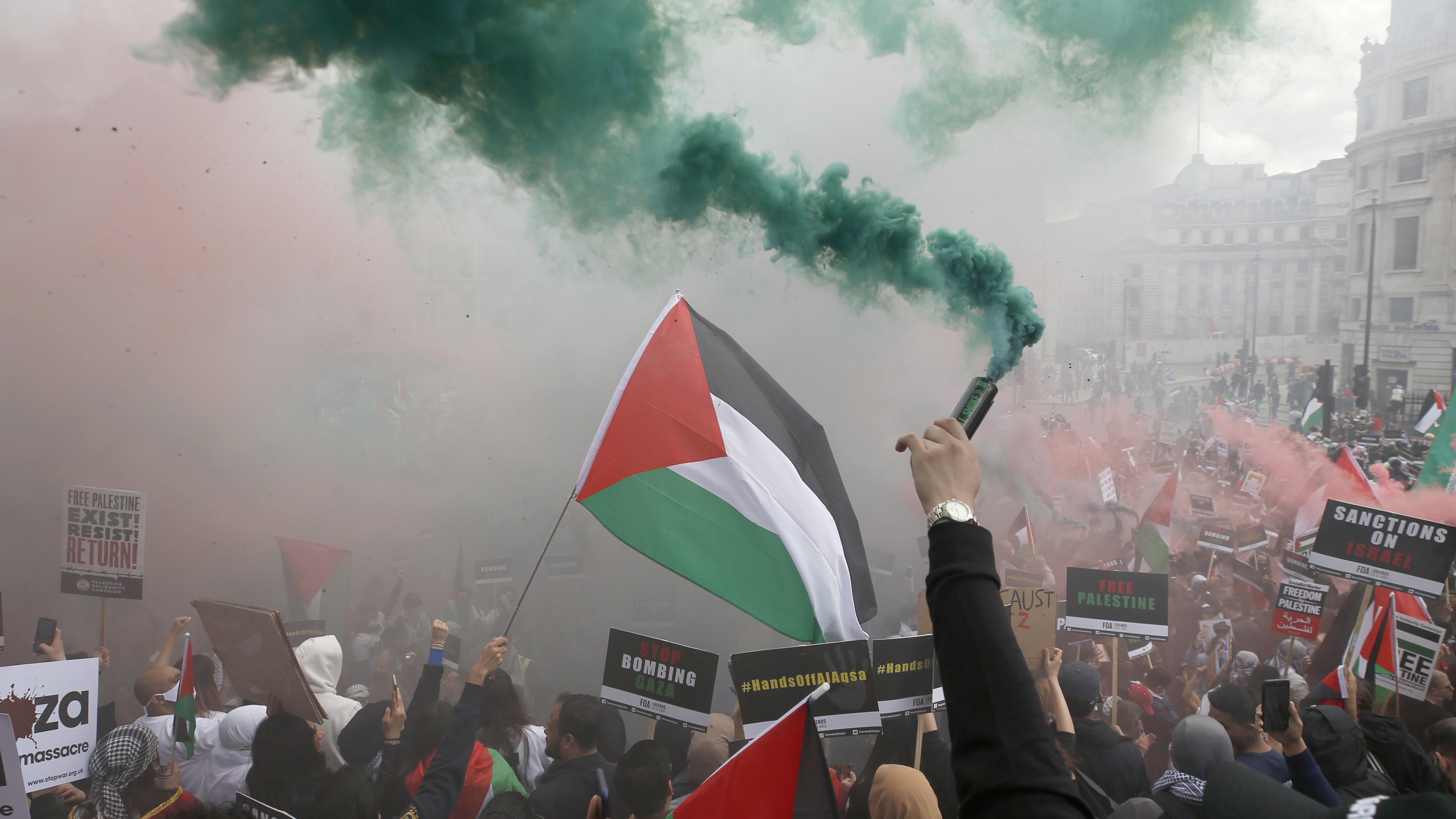
A free daily email with the biggest news stories of the day – and the best features from TheWeek.com
You are now subscribed
Your newsletter sign-up was successful
Two weeks ago, Black Lives Matter (BLM) protesters marched through central London in the latest in a string of demonstrations against racial inequality and injustice.
“Holding banners, placards and flags” displaying the now-recognisable symbols of the movement, the activists gathered by Victoria Embankment before marching to Hyde Park where a stage had been set up to host speeches, the Evening Standard reports.
However, unlike the protests in the immediate aftermath of George Floyd’s murder last year, this latest protest also saw demonstrators “let off green and red-coloured smoke”, as well as people “draped in the Palestinian flag”.
The Week
Escape your echo chamber. Get the facts behind the news, plus analysis from multiple perspectives.

Sign up for The Week's Free Newsletters
From our morning news briefing to a weekly Good News Newsletter, get the best of The Week delivered directly to your inbox.
From our morning news briefing to a weekly Good News Newsletter, get the best of The Week delivered directly to your inbox.
Organised by the Palestine Solidarity Campaign (PSC), the demonstration was the latest in a range of protests in which BLM has allied itself with the Palestinian cause – a link made not just in London, but also at protests across major western cities.
Allies in arms
“Black Lives Matter stands in solidarity with Palestinians,” the group wrote on Twitter two weeks ago, as the latest round of violence between Israel and Palestinian militants raged on across Gaza and a host of Israeli cities. “We are a movement committed to ending settler colonialism in all forms and will continue to advocate for Palestinian liberation (always have. And always will be).”
The BLM protests in London featured chants of “we are all Palestinians”, while The Times reports that “among the many Palestinian flags and hand-drawn placards being flown at a recent anti-Israel demonstration in New York one stood out”.
A free daily email with the biggest news stories of the day – and the best features from TheWeek.com
The placard read “we can’t breathe since 1948”, the paper says, combining the slogan of the BLM movement with a reference to the year of Israel’s foundation, a date known by Palestinians as the “Nakba” – meaning “catastrophe”.
BLM’s “adoption of the Palestinian cause” has seen “more and larger demonstrations against the state than ever before in the US”, the paper adds, where traditionally support for Palestine has been an “unpopular and marginal issue in a country that is strident in its support of Israel”.
Writing on The Conversation, Micaela Sahhar, a lecturer in the history of ideas at the University of Melbourne, notes that “the tenets of BLM are amplifying the struggles of Palestinians and making them more visible and understandable to a global audience”.
While the BLM movement “is forcing a reckoning with systemic racism”, she continues, “there is new attention being paid to the origins of the Palestinians’ struggles”, namely “settler-colonialism, asymmetric power relations and racial discrimination”.
“Just as BLM has garnered increasing public support beyond the African-American community in the past year”, she adds, “a broader alliance of prominent voices is rallying behind the Palestinian cause, as well”.
Shared cause
The emergence of BLM in the US has seen a “vocal group of left-wing Democratic members”, some of whom “cut their teeth in the BLM”, offer “open support for the Palestinian cause”, The Times reports.
Cori Bush, a Democratic congresswoman who was previously a BLM organiser, “compared her clashes with police to those faced by Palestinians”, The Washington Post reports, tweeting: “Our government must stop funding the apartheid status quo.”
Bush’s intervention came after Rashida Tlaib, another congresswoman on the left of the Democratic party and the first woman of Palestinian descent to sit in the House of Representatives, “confronted” Joe Biden in Michigan “over his support for Israel amid the violence in Gaza”, The New York Times adds.
Some grassroots BLM activists have dubbed their fight an “American intifada”, with organiser Russell Rickford writing on Vox that “[there] can be no doubt that BLM… has driven to the centre of black political awareness questions of human rights and state violence – and principles of popular revolt – that are germane to Palestinian struggle”.
“That a critical mass of young people was willing to openly support Palestinian freedom – a cause many progressive activists once viewed as a third rail – reflects the extent to which public discourse on this issue has shifted”, he added.
Much of the affinity felt between BLM demonstrators and the Palestinian cause stems from their shared opposition of “settler colonialism”, a form of colonialism in which the original population of an area is replaced with a new society of settlers, writes the University of Melbourne’s Sahhar.
“We understand that the liberation of black people in the US is tied to the liberation of black people all over the world, and tied to the liberation of oppressed people all over the world”, Melina Abdullah, co-founder of the Los Angeles chapter of BLM, told The Washington Post. “Being in solidarity with the Palestinian people is something that’s been part of our work as BLM for almost as long as we’ve been an organisation.”
Old certainties
Some 30 years ago, while serving as a senator, Biden described himself as “Israel’s best Catholic friend”. But BLM’s emergence as a “potent political force” is “pressing the Democratic Party to adopt a dramatically different approach to the long-standing Israeli-Palestinian conflict”, The Washington Post says.
“It would be a mistake to believe that America has adopted the Palestinian cause”, The Times reports. But while “the defence and security of Israel remains central to US policy in the Middle East” there has been a marked change in tone “both diplomatically and on the streets”.
Not everybody is impressed by that shift, with Mark Mellman, president of Democratic Majority for Israel, telling The Washington Post that “most people recognise that there’s a totally different dynamic at work between a terrorist organisation shooting 3,500 missiles into your country on the one hand, and the racial dynamics that take place in American cities”.
However, as Sahhar notes, “there’s a greater willingness among some to be more vocal” on issues relating to Palestinian causes, “a choice that parallels the ethical questions raised by BLM”.
-
 Political cartoons for February 15
Political cartoons for February 15Cartoons Sunday's political cartoons include political ventriloquism, Europe in the middle, and more
-
 The broken water companies failing England and Wales
The broken water companies failing England and WalesExplainer With rising bills, deteriorating river health and a lack of investment, regulators face an uphill battle to stabilise the industry
-
 A thrilling foodie city in northern Japan
A thrilling foodie city in northern JapanThe Week Recommends The food scene here is ‘unspoilt’ and ‘fun’
-
 Netanyahu’s reforms: an existential threat to Israel?
Netanyahu’s reforms: an existential threat to Israel?feature The nation is divided over controversial move depriving Israel’s supreme court of the right to override government decisions
-
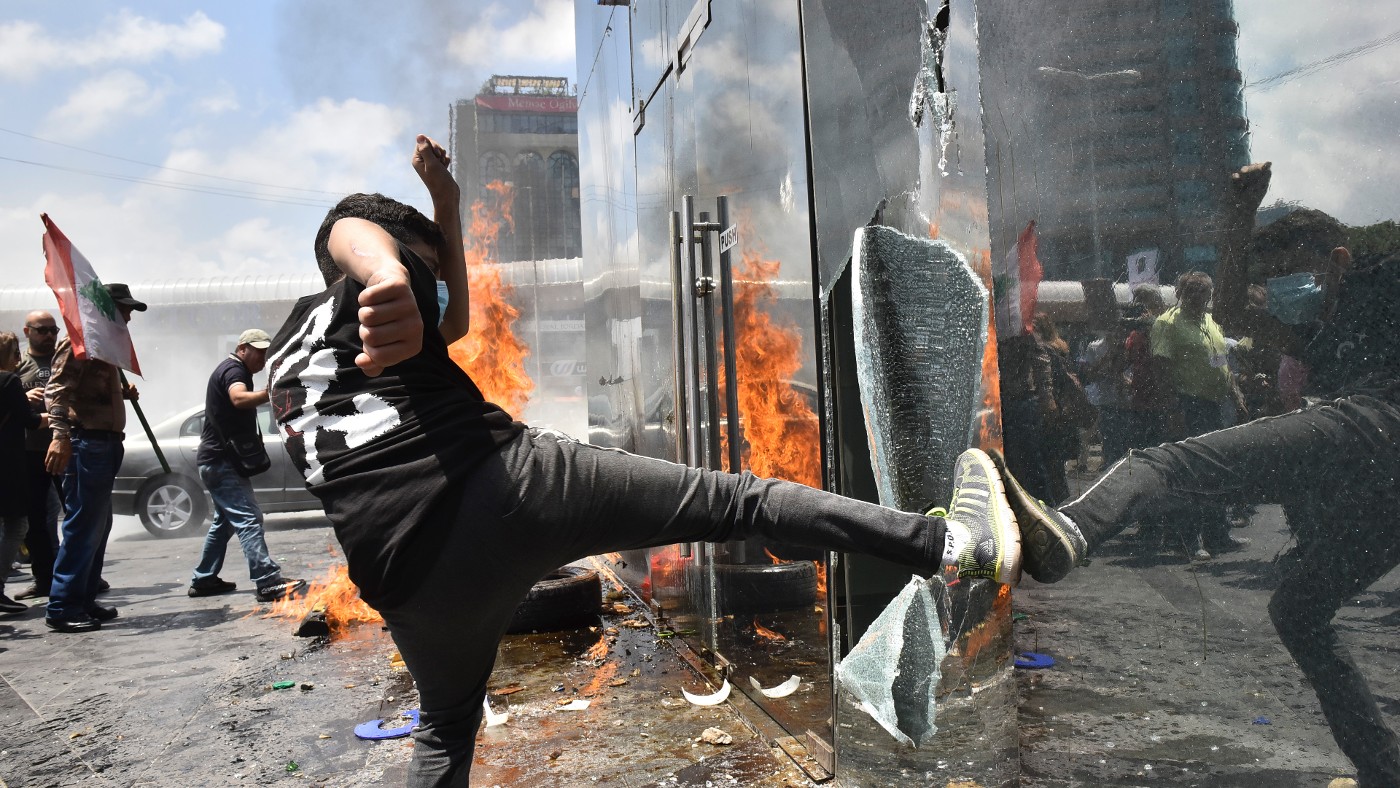 A country still in crisis: Lebanon three years on from Beirut blast
A country still in crisis: Lebanon three years on from Beirut blastfeature Political, economic and criminal dramas are causing a damaging stalemate in the Middle East nation
-
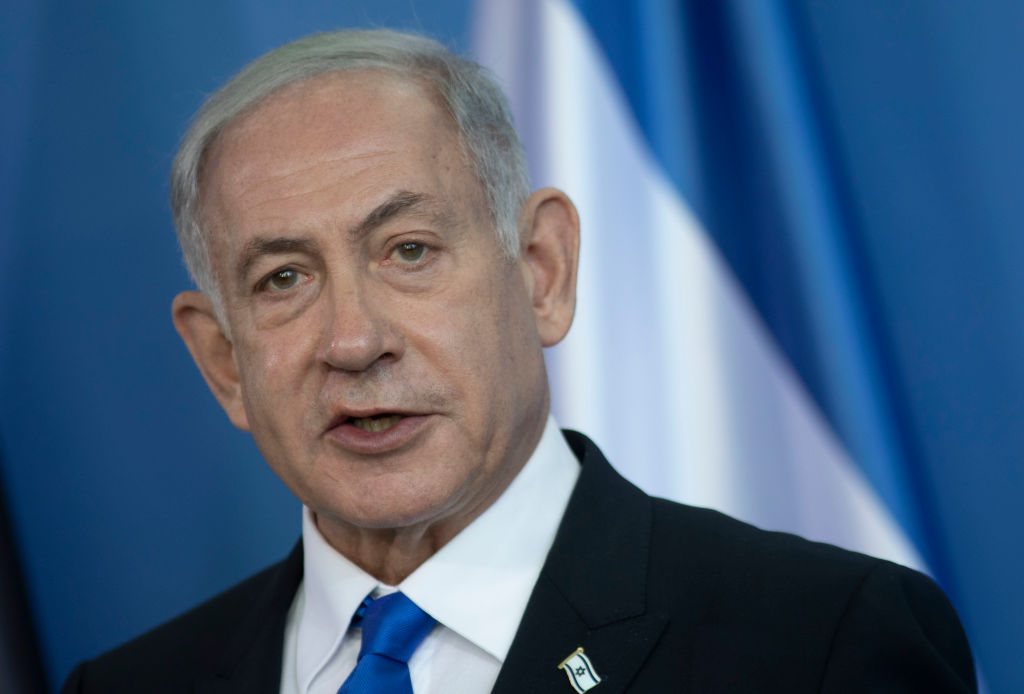 The past controversies of Benjamin Netanyahu
The past controversies of Benjamin NetanyahuUnder the Radar The Israeli prime minister has been in hot water before
-
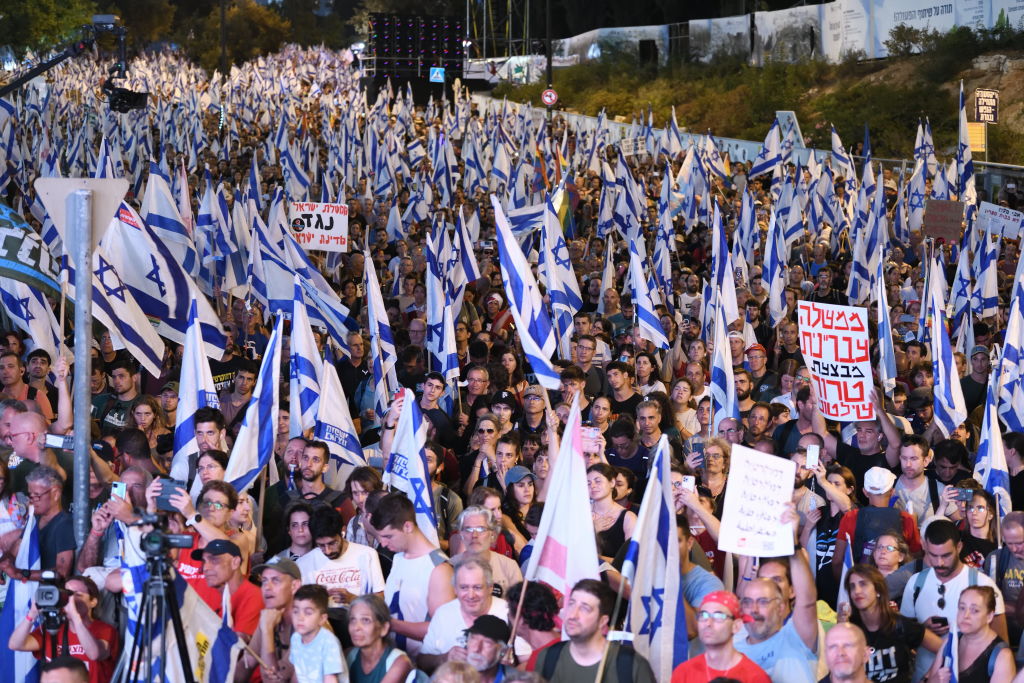 Israel on edge, Netanyahu hospitalized ahead of Supreme Court overhaul vote
Israel on edge, Netanyahu hospitalized ahead of Supreme Court overhaul voteSpeed Read
-
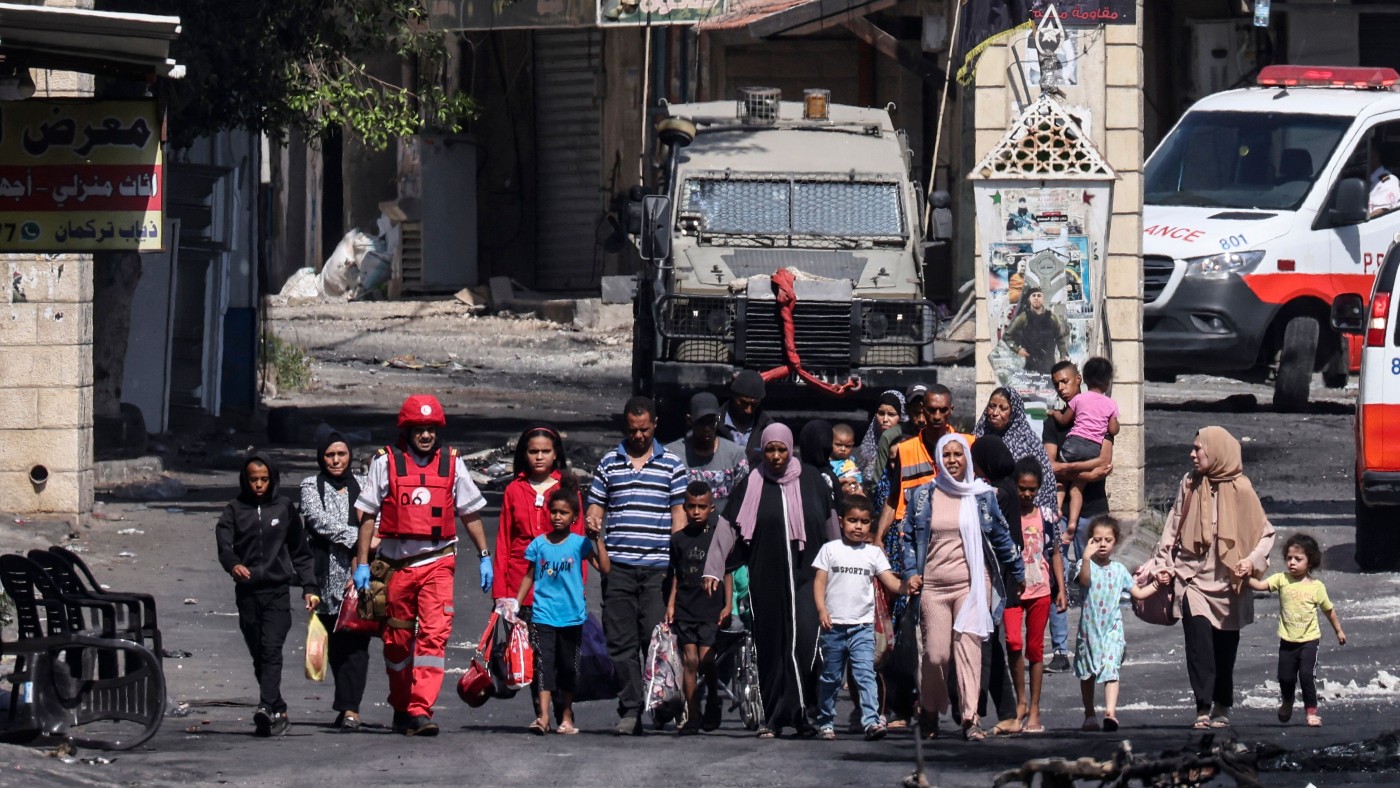 Jenin and the endless cycle of Palestinian displacement
Jenin and the endless cycle of Palestinian displacementfeature Refugee camp at the heart of a struggle around demographics, displacement and mobility
-
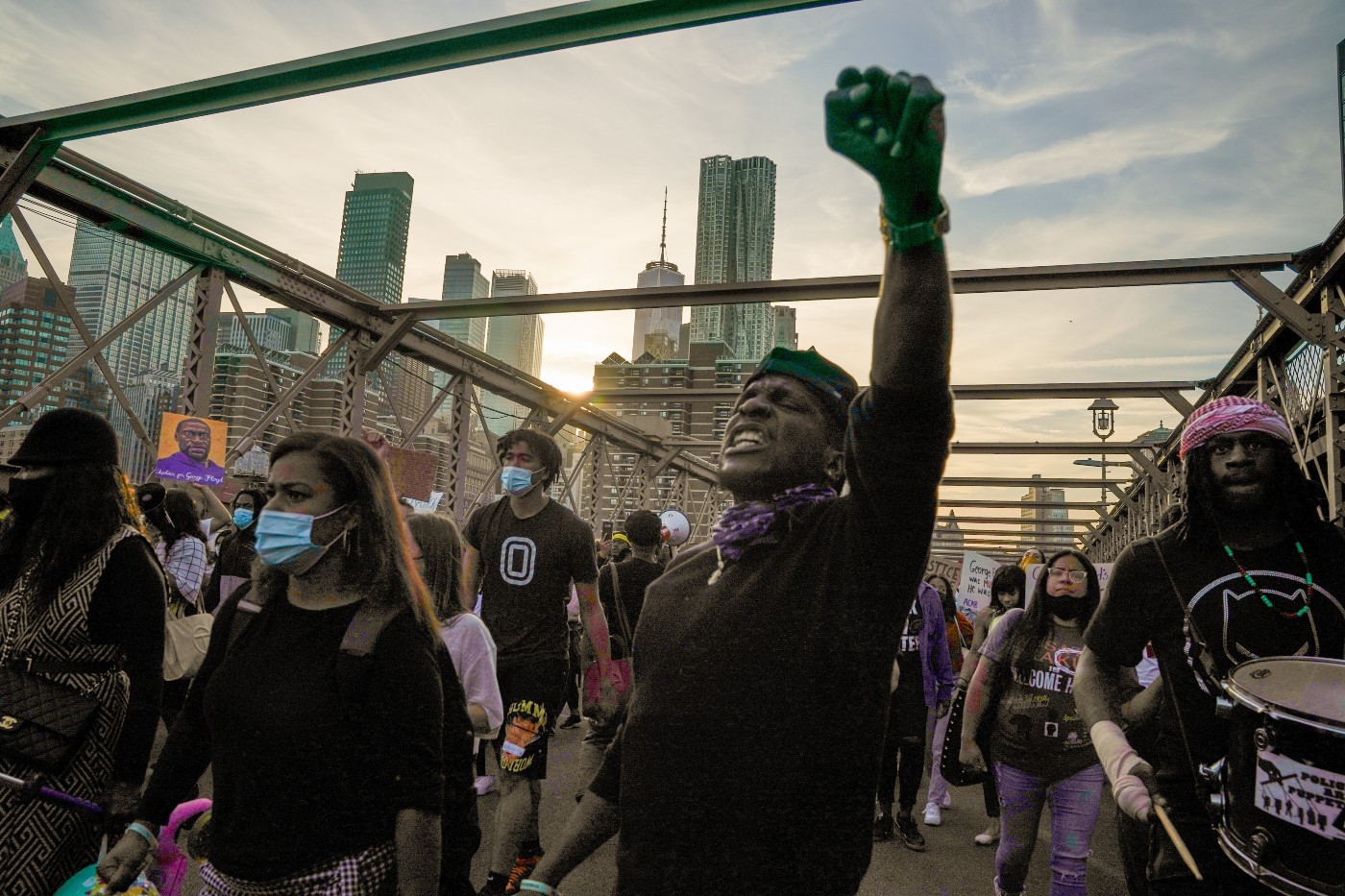 George Floyd legacy: what has changed in the US three years on
George Floyd legacy: what has changed in the US three years onfeature Police officers are more accountable but has ‘white empathy’ hit a wall?
-
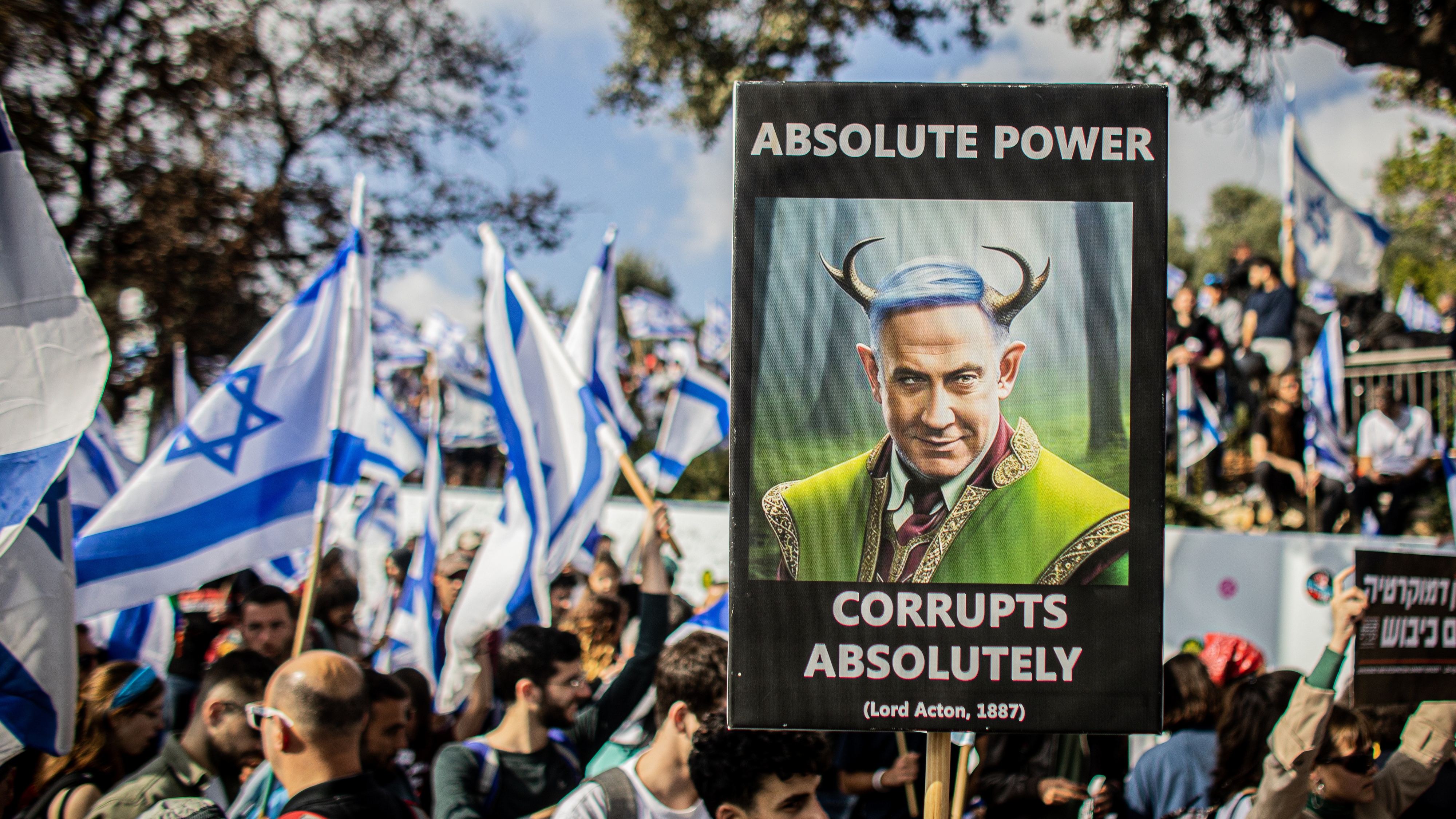 Netanyahu brings Israel to a crossroads
Netanyahu brings Israel to a crossroadsfeature The prime minister was ‘forced to pause’ his ‘ambitious plan’ to weaken country’s supreme court
-
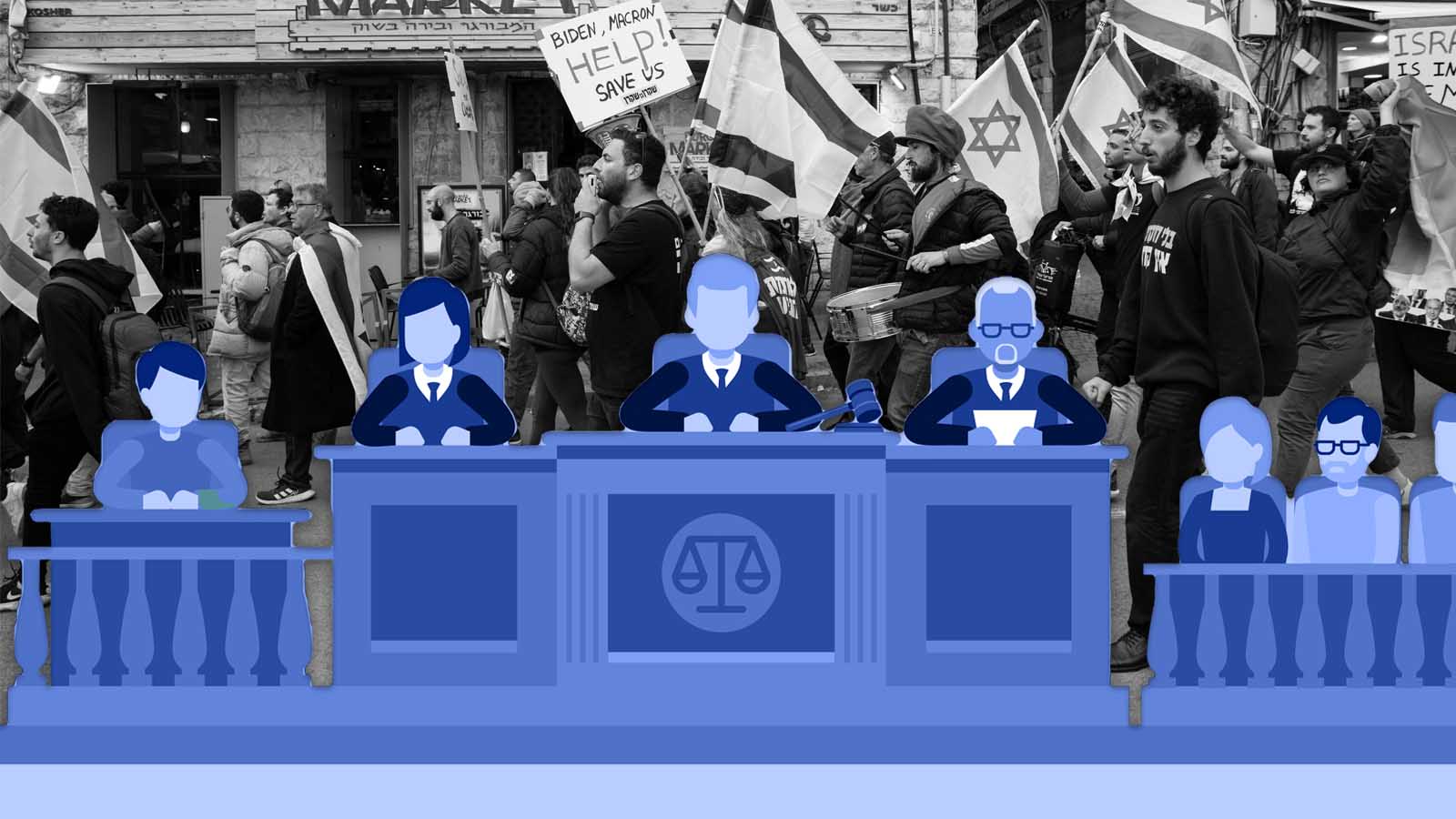 Why are Netanyahu's judicial reforms so controversial?
Why are Netanyahu's judicial reforms so controversial?In Depth Opponents have warned the government's suggested reforms could be the end of democracy in Israel